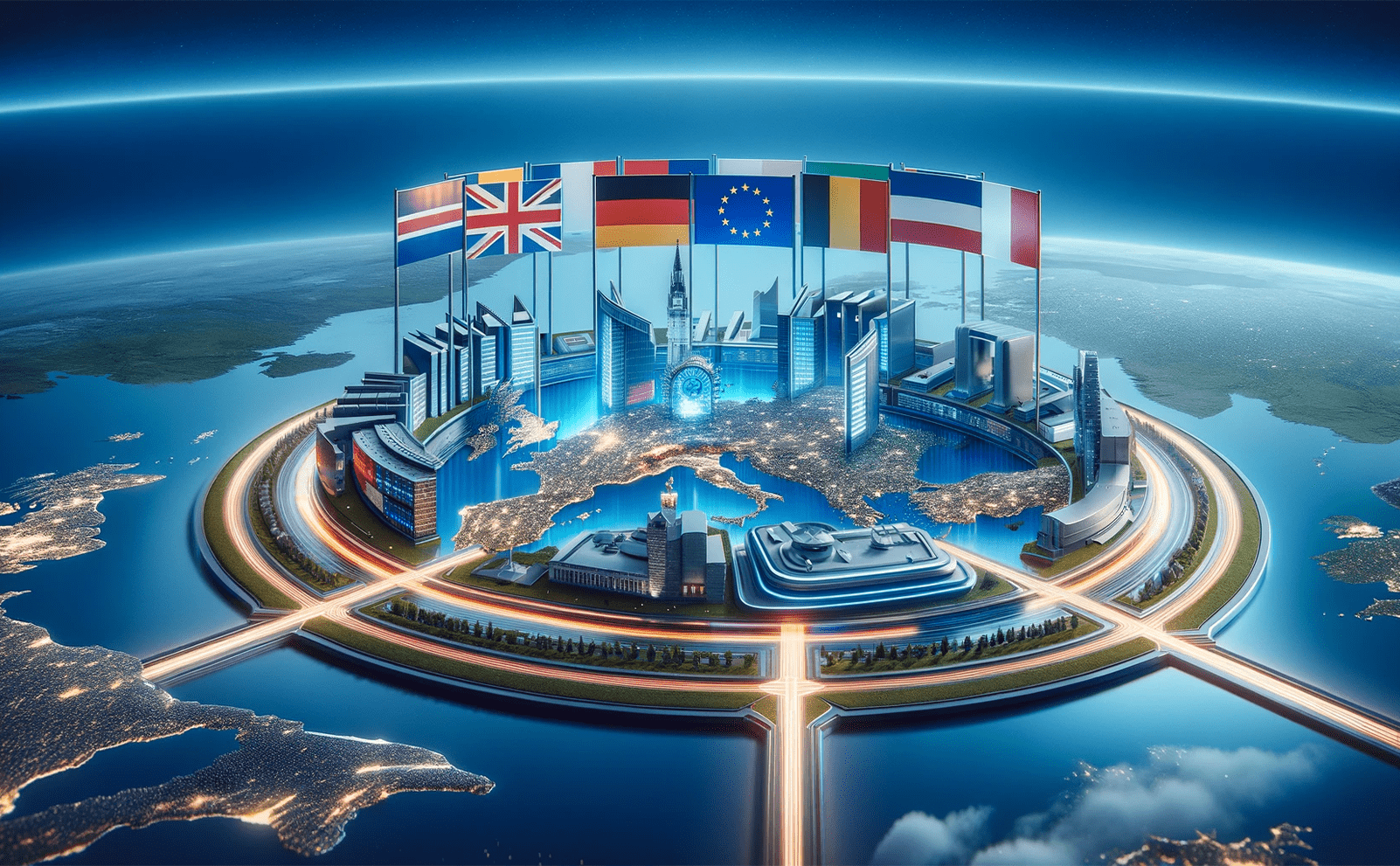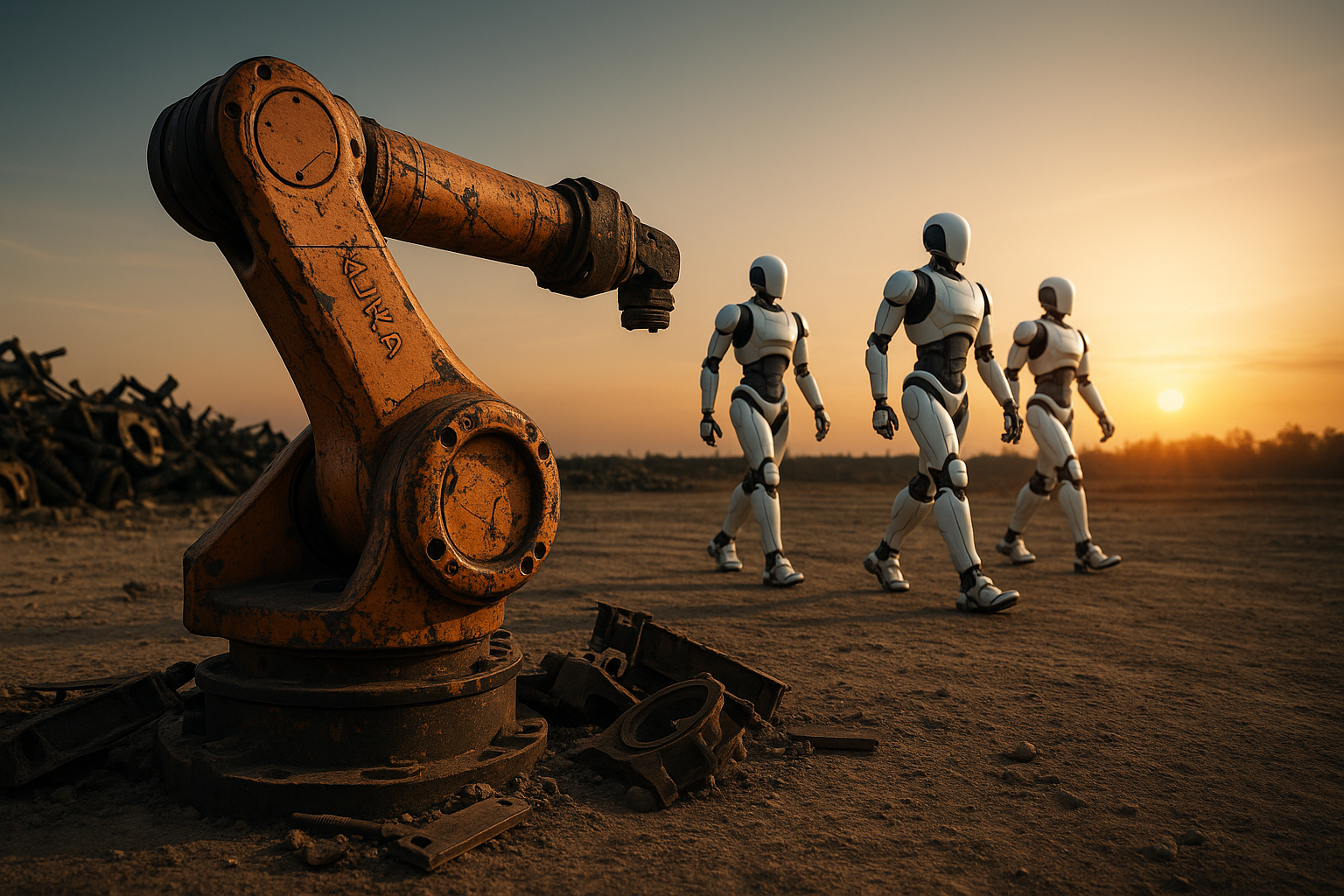A realistic look at the EU and our future
Can Germany, as a European nation state, still provide us with a positive economic and social perspective? Can we maintain our current prosperity in the long term?
I don’t think so. Because, the fact is we won’t change the situation by complaining, emigrating, and comparing ourselves with our neighbors. And I don’t see any intensive efforts to make Europe fit for the future.
If we go through our geopolitical options and think them through to the end, there is only one realistic prospect: a truly new and strong European Union as a sovereign state. This is our only chance to compete on an equal footing with countries such as China, India or the USA in the coming decades and to maintain our prosperity. But where do we stand with the EU today?
The EU in its current form is a politically necessary construct that has brought us closer together in recent years. However, this forced marriage is a completely unsuitable system for European citizens and society to achieve long-term economic success and a level of prosperity comparable to that of today – the multipolar world order is too complex for this and the EU is not agile enough in international competition.
How can we turn Europe into a respected partner on a global level? And who should be part of a core Europe and what holds us together?
What defines us as the EU today?
First the European Economic Community and then the EU is first and foremost a political project with economic policy objectives such as price stability, growth, and full employment. It has been implemented through various instruments such as monetary, fiscal, industrial, and regulatory policy within an institutional framework.
This framework includes, for example, an independent central bank and national treasuries with budget rules. The European Monetary Union and the euro are particularly important to us in our narratives: We see them as ongoing projects where the right balance between fiscal, monetary, and regulatory structure is difficult to achieve. The European Union was only founded in 1992 with the Maastricht Treaty, which gave it responsibilities in non-economic policy areas. We see the EU as a continuous process of institutional development and adaptation to crises, without a definitive end goal.
The current purpose of European politics and politicians is to build and develop an apparatus of bureaucracy. We are in the process of creating and defining Europe through this common administration. A genuine European identity as a prerequisite for supranational popular sovereignty is thus emerging only slowly, if at all, and with a vehement counter-current.
Is this enough to successfully survive in today’s world and actively position Europe? Certainly not, because from a systemic perspective, the individual nation states and the European parliamentarians are primarily preoccupied with themselves. They are creating a closely intermeshed bureaucratic monster in which an infinite number of individual interests are taken into account.
A look at the history
It is an illusion to hope that this perspective on Europe will come to politicians or us citizens by itself or through a peacefully evolving process. We cannot create a strong, peaceful and prosperous Europe with demonstrations and calls for peace – or without effort, sweat, and great sacrifice. Radical change has never taken place in the history of this world without war, revolution, struggle, and loss.
The real and final birth of Europe with its own identity and an overarching cultural consensus has yet to take place. Without this act, Europe does not exist in reality, not in people’s minds. The euro, the many regulations, the already highly unified economic area, all the talk – all this serves to prepare for the birth. We have prepared the house, changed the wallpaper – but the child has not yet arrived!
This birth will be painful. It cannot be the result of another week of negotiations. It cannot be ruled out that there will be physical violence – revolution. But there will certainly be losers and winners. Perhaps the path will once again lead to a core Europe, only to rise again like a sphinx from the ashes.
So, we have to ask ourselves: Do we really want this child? What are our expectations for its future, our hopes for its appearance, its abilities? And then we will have to realize that we will simply accept and love it when it finally arrives.
Are we ready?
Thus, the question for each and every one of us is: Are we ready to embark on what will surely be a depriving, uncertain, and dangerous path for a generation? Are we prepared to give up personal privileges and comforts, the status we have already achieved?
Or are we hoping to become the first case in history in which necessary far-reaching adjustments and changes can be achieved without pain? Perhaps things will go well for another 50 years so that we ourselves will no longer be affected.
For a clear conscience, we can campaign for the global climate or social responsibility. We can continue to ignore the fact that we will only be able to take care of these surely right and important issues in 20 years’ time if we have a really stable basis and perspective at geopolitical level for our prosperity.
The European core countries are almost all colonial powers that are not as well-liked everywhere in the global community of states as many of us hope, believe, or assume. We have already effectively lost the majority in the UN and are no longer able to push forward and implement important projects. We need to think about what role we and other democracies want to play on a geopolitical level in the next 30 years.
Or should we simply emigrate?
Self-image and external image diverge: I think the likelihood of us embarking on the path to a united and truly strong Europe is low. The French still hope that they can structure Europe and the Italians have found ways to cleverly use the structures of the EU to their own advantage. And the Germans? We used to be model students in environmental protection, but that was a few years ago. We were European champions in the fight against corruption. Today, we only preach moral sermons and are increasingly ridiculed. Despite Brexit and the miserable economic and social consequences, Europhobes see an opportunity in the “Dexit” or other exit scenarios. They want to regain self-determination and promise themselves and others outrageous advantages.
So, is selfishly going it alone by emigrating the only way to solve the problem? Today, many people are again thinking about whether they should simply turn their backs on Germany. Absolutely understandable.
After all, no nurse, no salesperson, no civil servant and certainly no entrepreneur is valued by the masses and the media. Now politicians are already starting to complain about a lack of appreciation.
That’s good, because it shows that prosperity is more than just tax breaks, social goodies for families, subsidies, and money in your bank account and always insisting on your rights.
If you do a decent job, work, and make an effort, you deserve the respect of others. We have already lost this aspect of prosperity as a society because too many in our society nowadays expect effortless prosperity.
So yes, emigration is certainly an option for educated and sufficiently flexible people. But not one that changes anything. It is a somewhat selfish option. But there are countries that still offer workers at least the prosperity of recognition.
Change of perspective and our will to act
There is no established group today that is committed to a radically new and consistent Europe.
We are still far enough away from revolution, war, and deprivation for there to be any serious group that would campaign for a new Europe.
Simply changing my perspective to the extent that we could change something if we really wanted to has given me a new perspective on the daily frustration with bureaucracy, our politics and also the personal though to “just leave”.
Systemically, everything runs as it must and can. Without changing the system, things simply continue as they are.
Working for a new Europe is a positively achievable goal for all of us. In contrast to our current debates on saving the climate or a counter-movement to the shift to the right in our society, we could stand up for something instead of simply being against something.
We need many small quantum leaps: the realization by all Europeans that without a united Europe, we are sliding down the road to political and economic irrelevance. These are many small quantum leaps, but they can ultimately lead to revolutionary change, which together would then represent a giant step.
Nationalists, however, have something against this and instead have simple answers to complex questions. (I obviously have more questions than answers).
What each of us must ask ourselves, having understood this and looking at ourselves in the mirror: Have we really done the right thing and done enough to lead our society into a positive future?



